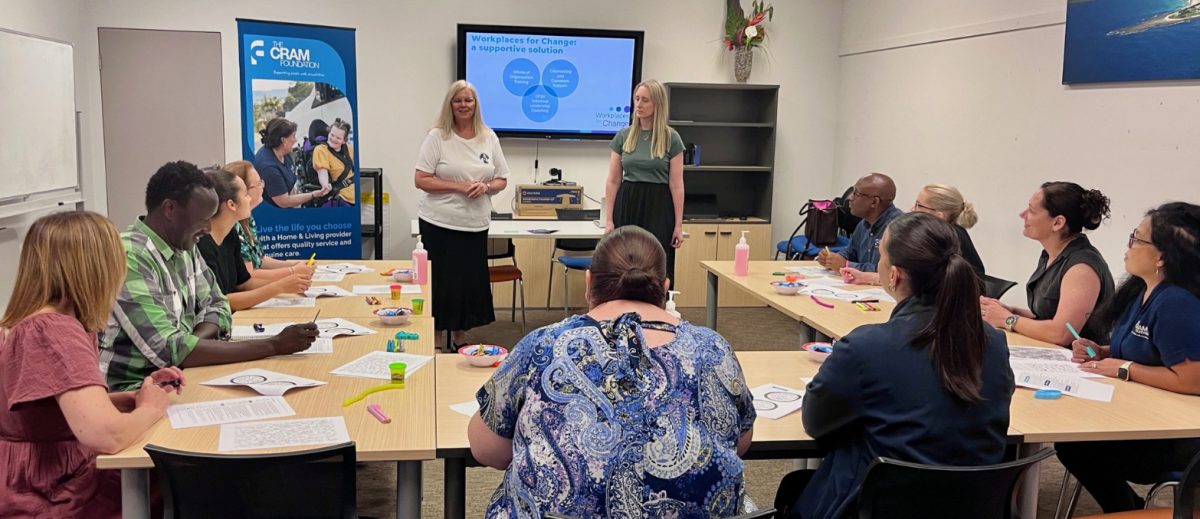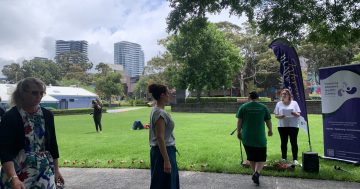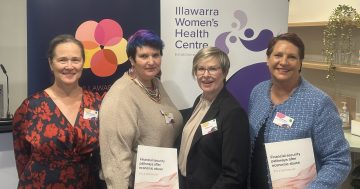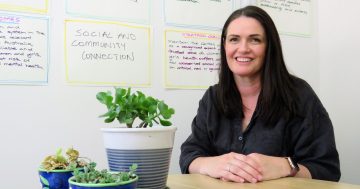
Illawarra Women’s Health Centre is delivering the Workplaces For Change program, with The Cram Foundation its strategic pilot partner. Photo: Supplied.
Domestic violence doesn’t stop at home – it affects workplaces too.
The Illawarra Women’s Health Centre has launched its “Workplaces for Change” program to help businesses better support employees impacted by domestic, family, and sexual violence (DFSV).
Developed with insights from The Cram Foundation as a strategic pilot partner over 18 months, the program combines tailored training and trauma-informed employee assistance services to create safer, more supportive workplace environments.
According to the Monash University’s Safe, Thriving and Secure Report 2021, between 55 and 70 per cent of women who have experienced violence or are experiencing violence are currently in the workforce – around one in six female workers.
Of the respondents, nearly half of those who had experienced domestic violence reported that the violence affected their capacity to get to work and, for those employees who were able to attend work, their meaningful engagement in the workplace and their ability to fulfil the requirements of their roles were significantly impacted.
In addition, 19 per cent reported that domestic violence had continued while they were in their workplace by the external perpetrator – showing up at the workplace, or making harassing phone calls, texts or emails.
Illawarra Women’s Health Centre general manager Ali Anderson said the statistics showed the effects of domestic violence were not confined to the home or family members.
“Domestic, family, and sexual violence is a pervasive issue that infiltrates every corner of society, including workplaces, and demands a united and comprehensive response,” Ali said.
She said working with Cram had allowed them to rigorously test and enhance the program, ensuring it met the diverse needs of workplaces and to ensure its effectiveness.
“The program includes training customised to all levels of staff and a specialist DFSV Employee Assistance Program (EAP) for individuals requiring trauma and violence informed counselling or casework support,” she said.
“With local knowledge of services and supports, the program assists organisations wishing to proactively recognise, respond to and appropriately support staff who are experiencing domestic family or sexual violence.”
The Monash report had stated that throughout the survey responses and during the interviews, a clear message emerged from victim-survivors.
“If workplaces do not have safe and supportive cultures, then the introduction and operation of any DFV policies are null. The administration and operation of the leave policy is just as critical as the existence of the policy in the first instance,” it read.
The training, facilitated by frontline practitioners from the Illawarra Women’s Health Centre, includes modules that raise awareness, educate staff on the impacts of DFSV, and provide practical strategies for fostering a supportive workplace culture.
The Cram Foundation CEO Alisha Musker said the pilot program collaboration had been beneficial for everyone in the organisation.
“With the majority of our workforce being female, the stark statistics around DFSV are particularly concerning,” she said.
“By partnering with the Illawarra Women’s Health Centre as their strategic pilot partner, we’ve been able to equip our team with the essential knowledge and tools to support those affected by DFSV.
“This ensures a safer environment for everyone at Cram.”
The training also addresses the significant costs associated with domestic and family violence in the workplace and the signs that this might be occurring, including increased absenteeism, higher staff turnover, reduced productivity, and workplace conflicts.
According to the Monash Report, violence against women and their children costs the Australian economy an estimated $26 billion annually, underscoring the critical need for organisational support.
This figure encompasses not only direct financial and economic costs, but also emotional, social, and societal impacts. Costs include healthcare expenses, legal and policing costs, and diminished workplace productivity.
Additionally, DFV imposes long-term pressures on social services, welfare systems, and the economy, as survivors often require extensive support for recovery and rehabilitation.
Workplaces for Change is now open for partnership opportunities across all sectors to organisations committed to creating a safe and inclusive workplace. Learn more for workplaces and employees.
Anyone impacted by sexual, domestic or family violence can contact 1800RESPECT on 1800 737 732 or Full Stop Australia on 1800 385 578.


















